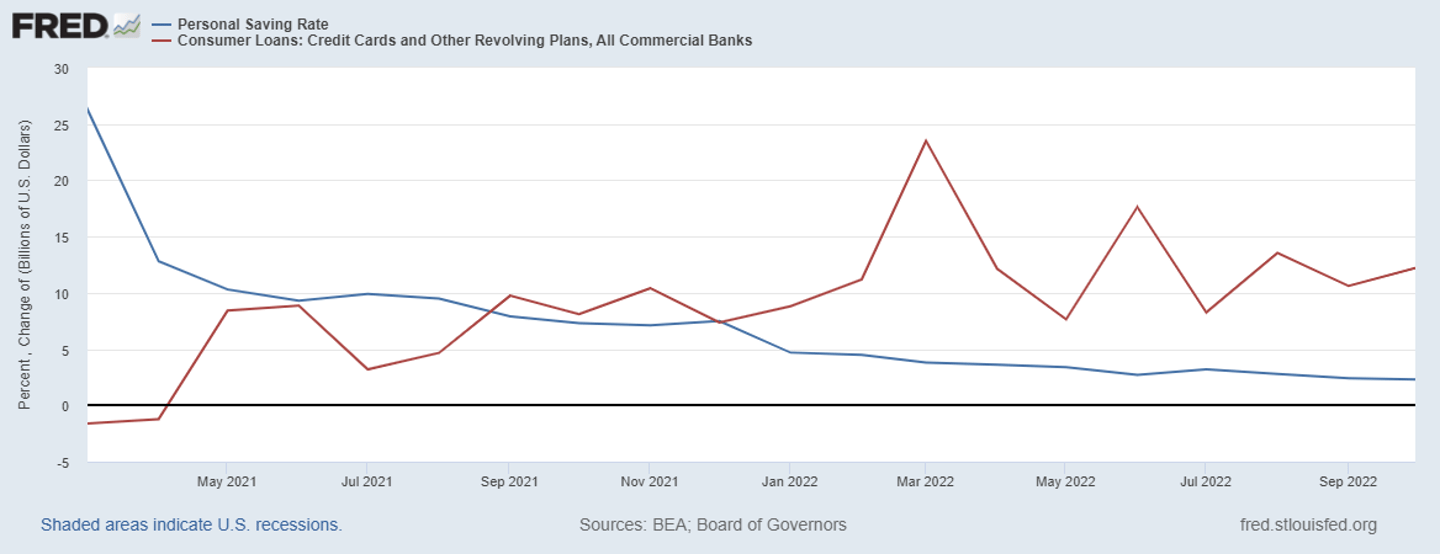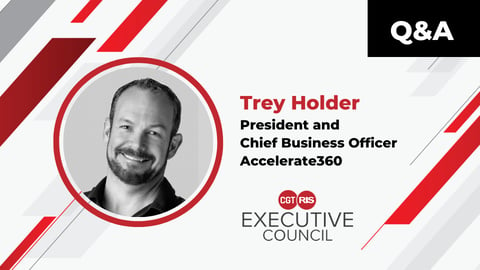Santa Baby, One Thing We Really Need ... Some Christmas Commercialism
Perhaps nothing embodies the symbiotic nature of Christmas and retail as the Eartha Kitt 1953 Classic “Santa Baby.” Commercialism has always been an integral part of our modern yuletide celebrations. “Miracle on 34th Street” was as much a retail commercial as a Christmas movie. Ralphie in “A Christmas Story” had his eyes opened to commercialism with his epiphanic Little Orphan Annie Ovaltine moment, making him wiser to the ways of the world.
Throughout the season, Black (as in Friday) is as festive a color to store owners as red and green. Their very survival has always been intermingled with ole Chris Kringle with upward to 40% of sales happening over the holiday.
Let’s be honest, Christmas wouldn’t be the same without the gifts and the childhood anticipation of hitting the motherload on Christmas morning. We all remember our best Christmas toy ever, the bustling malls and packages, and being on Santa’s lap explaining what we deserve and why. Stores have used Christmas to drive the economy, and frankly Christmas has used commercialism to, as Ralphie puts it, secure its place as the date around which “the entire kid year revolved.”
A Look at the Past
Down here in New Orleans, Christmas was historically ushered in by Santa’s mascot Mr. Bingle, a Big Easy creation by Maison Blanche, the now defunct department store. Founded in 1897, its old flagship store on Canal St. (now a Ritz-Carlton) created this special little snowball elf with a sugar cone hat and holly wings in 1947 after the owner saw Marshall Field’s “Uncle Mistletoe” on a trip to Chicago. Mr. Bingle’s marionette shows in Maison Blanche’s huge display windows were a mainstay for almost 40 years.
It took two huge flat cars to move a huge 50’ Mr. Bingle paper mâché figure from its production in Chicago to New Orleans where he adorned the store annually starting in November 1949. When kids saw Mr. Bingle downtown, they knew Christmas was here. But New Orleans weather can be volatile on the tail end of hurricane season and one day Mr. Bingle took to flight, bursting into a thousand shreds of confetti everywhere as if it was Mardi Gras.
In the aftermath of the great Bingle tragedy, he was replaced by smaller versions. Two were lost forever in Katrina and the only surviving example ended up in a dumpster during the Ritz Carlton renovation. Luckily, some enterprising locals noticed the treasure discarded by northern heathen contractors, and through their dumpster diving heroics, the last original Mr. Bingle is now prominently displayed during the holidays at the beautiful Houmas House Plantation Estate.
I share this story to demonstrate that commercialism of the holiday is ubiquitous across the country and holds a special place in our heart. Commercialism has generated such a warm glowing feeling around the holiday that grown men will fish old retail commercials out of dumpsters. Christmas is the lifeblood to so much retail success.
Santa Baby... More Than a Christmas Song?
Back to “Santa Baby”... When Philip Springer spent his 10 minutes scribbling lyrics on a pad in 1953, he didn’t think his song would be a hit, much less an all-time holiday favorite. Despite his apprehensions, Springer pitched the song to Broadway star Eartha Kitt, whose sexy voice melded perfectly with the irreverent verse to inject just enough harmless seduction into the holiday cheer.
It turns out both Christmas and sex sells. “Santa Baby” became the top selling Christmas song of ’53 and a global sensation selling over 620,000 records. However, as its success mounted, so did the backlash. The song’s shallow, self-centered appeal to Santa smacked of an inverted holiday me-too moment and many saw it as a step too far. The King of Greece had “Santa Baby” removed from his theater performance and many radio stations globally banned it altogether. Commercializing Christmas was okay, but such over the top, oozing materialism was seen as poor form, detracting from the season in an era still worried about such things.
Now I’m a big believer in keeping “the reason for the season” at the heart of Christmas but, frankly, given the disastrous economic indicators for 2023, a little Eartha Kitt commercialism might be exactly what’s needed. Without some windfall now, retailers and consumer brands alike might just end up with bankruptcy and mass layoffs in their stockings.
A Lasting Impact
We’re all aware of what inflation has done to American families, but there are signs that the pain hasn’t even started yet, nor have the majority of families adjusted spending to brace for impending hard times. Currently inflation at 7.7% is far outpacing wage growth of 5.1%, and the core expenditures in a middle class budget of gas, groceries, and utilities, are significantly higher at 17.6%, 10.9%, and 20%, respectively. As a result, 46% of families say they will buy less this year.
This means that the $9.2 billion in online spending on Black Friday was a record largely because of price increases, not incremental purchases. Meanwhile, the higher cost of labor coupled with lower sales reacting from loss of purchasing power hits already beleaguered small businesses disproportionately. Sears, which could be construed these days as a small business, might see its final days in the first quarter of 2023.
As many families were trimming the tree this past weekend, the tech sector started trimming the payrolls. Buried in the near 75k IT positions slashed by Facebook, Twitter and the like, was Amazon laying off 11k logistics workers in November while UPS Freight also put workers on furlough. You don’t do this right before the holiday season unless you have headlights that the volume won’t be there.
Higher unemployment from the frictional unemployment numbers enjoyed for half a decade will exacerbate the abysmally low labor participation rate of 62.1%. If you add in government workers to those on unemployment, disability, and retirees, you see a country where fewer producers must account for more of those draining the private sector via taxes.
Despite what Keynesians say about tightened supply, the only real driver of inflation is too many dollars. Our situation is a direct result of government incontinence masquerading as intellect and we’re about to pay a heavy price. Years of unbridled spending put us here and the hard truth is that the only way to break inflation is recession, and the worse the inflation, the harder the recession must be. Paul Krugman at this point should give back his Nobel prize for being so wrong so often.
Modern-Day Challenges
Let’s take a look at other fundamentals not getting enough press but serious enough to have the world’s two richest men, Elon Musk and Jeff Bezos, talk openly about the long, dark days ahead.
1. Single-Family Home Sales Fall in Historic, Dramatic Fashion
In fact, compared against past time frames when the Fed was hiking rates, it’s unprecedented and the most severe slowdown on record. This number is even perhaps worse than this depiction as several mega-firms have been buying single-family homes, artificially bolstering this traditional barometer of family financial health.
2. Small Business Armageddon on the Horizon
Forty-one percent of small businesses were delinquent on their November rent. That’s almost half for the perpetually confused Keynesian economists out there. The numbers are worse in some key segments with 42% of restaurants, 45% of gyms, and a full 57% of beauty parlors behind on rent. A good many of these survived on COVID loans while producing nothing as the government shut them down contributing to the inflation, which is now driving business away.
Additionally, 41% (yes, the same number) report that they are now making less than half of what they did pre-COVID shutdown. Many of these will sadly create the second wave of failures from the government’s insane reaction to COVID and then, coupled with the higher rates required to battle inflation, commercial real estate will tank, and with it, bankruptcies.
3. The Purchasing Manager’s Index for Both Manufacturing and Services Is in Severe Decline
This trend started months ago and was largely ignored. These two charts show the severity and one of the reasons why Amazon fired logistics workers this past week. What is disconcerting is that they are tracking together.
4. In Addition to the PMI Numbers, New Orders Have Fallen Off the Table
5. Most Concerning: Personal Credit Card Debt Is Soaring While Personal Savings Rates Falls Drastically
Again, the chart tells the story. Personal finances have gotten demonstrably worse since early 2021.
Retailers such as Walmart, Target, and Kohl's pushed their entire sales event calendar earlier to entice shoppers to buy before the Black Friday weekend rush, and many Black Friday sales continued through Saturday, November 26. Was it enough? In the end, consumers spent $5.29 billion on Thanksgiving Day, a 2.9% increase over last year (per Adobe). Sustained inflation north of 5% means we need a continued push, especially with small businesses, to avoid catastrophe.
So, let’s all appreciate a little Christmas commercialization this year. We need it to avoid what could be a very unsettling 18 to 24 months going forward. Eartha Kitt, became an international star and earned two Tony nominations, a Grammy nomination, and three Daytime Emmys. Perhaps my favorite aspect of her career was her 1967 stint as Cat Woman opposite the great Adam West in the Batman TV comedy. But in the end, this accomplished woman became the foremost icon of Christmas commercialism with “Santa Baby,” and in fact died on Christmas Day in 2008.
A lot of bad things happened in 2008, we could use a little Eartha Kit spirit to avoid a repeat of 2008 in 2023, if it’s at all possible.
Werner Graf is the Chief Customer Officer of Visionet and a member of the CGT/RIS Executive Council. Visionet specializes in IT and digital innovation.









